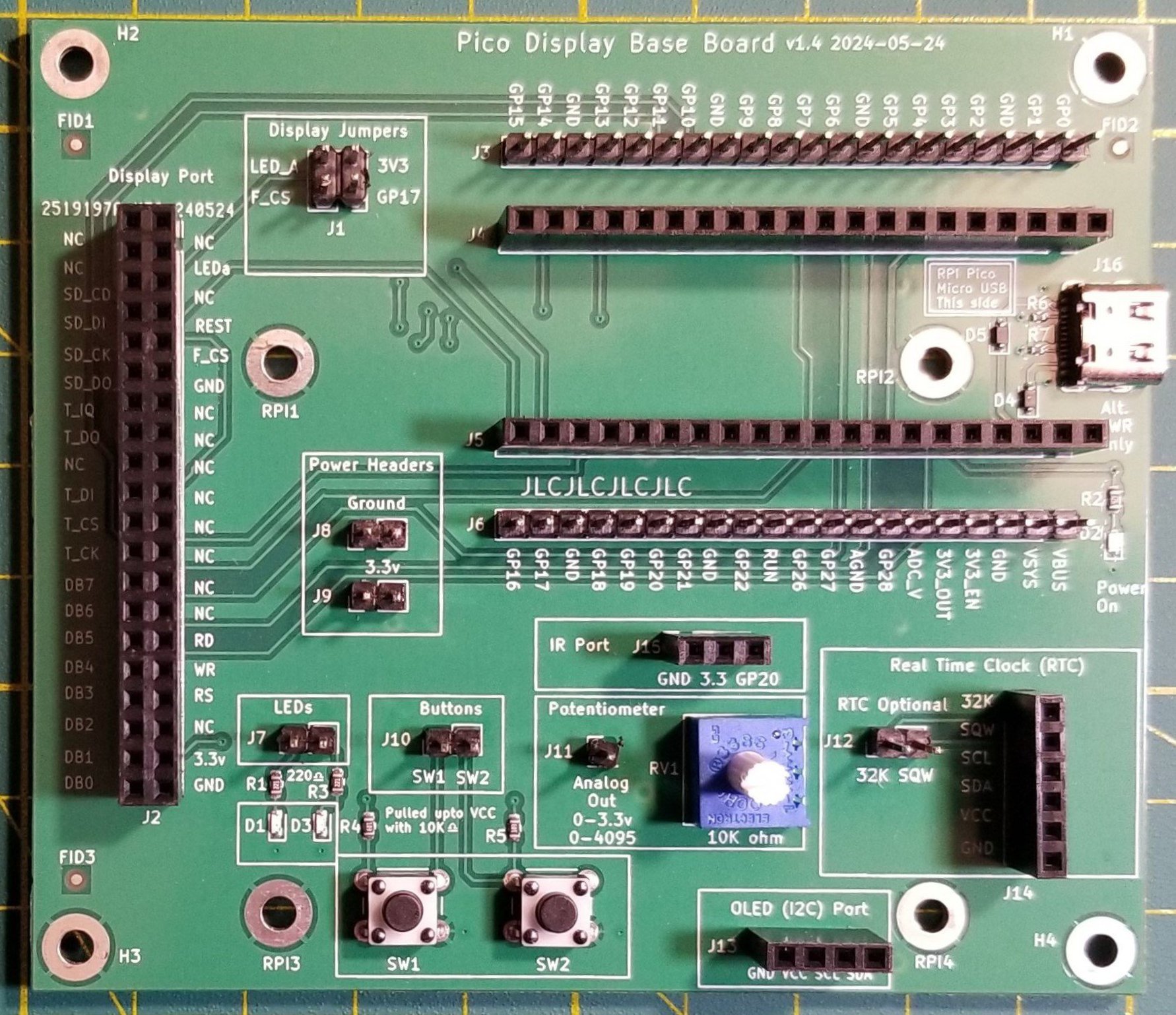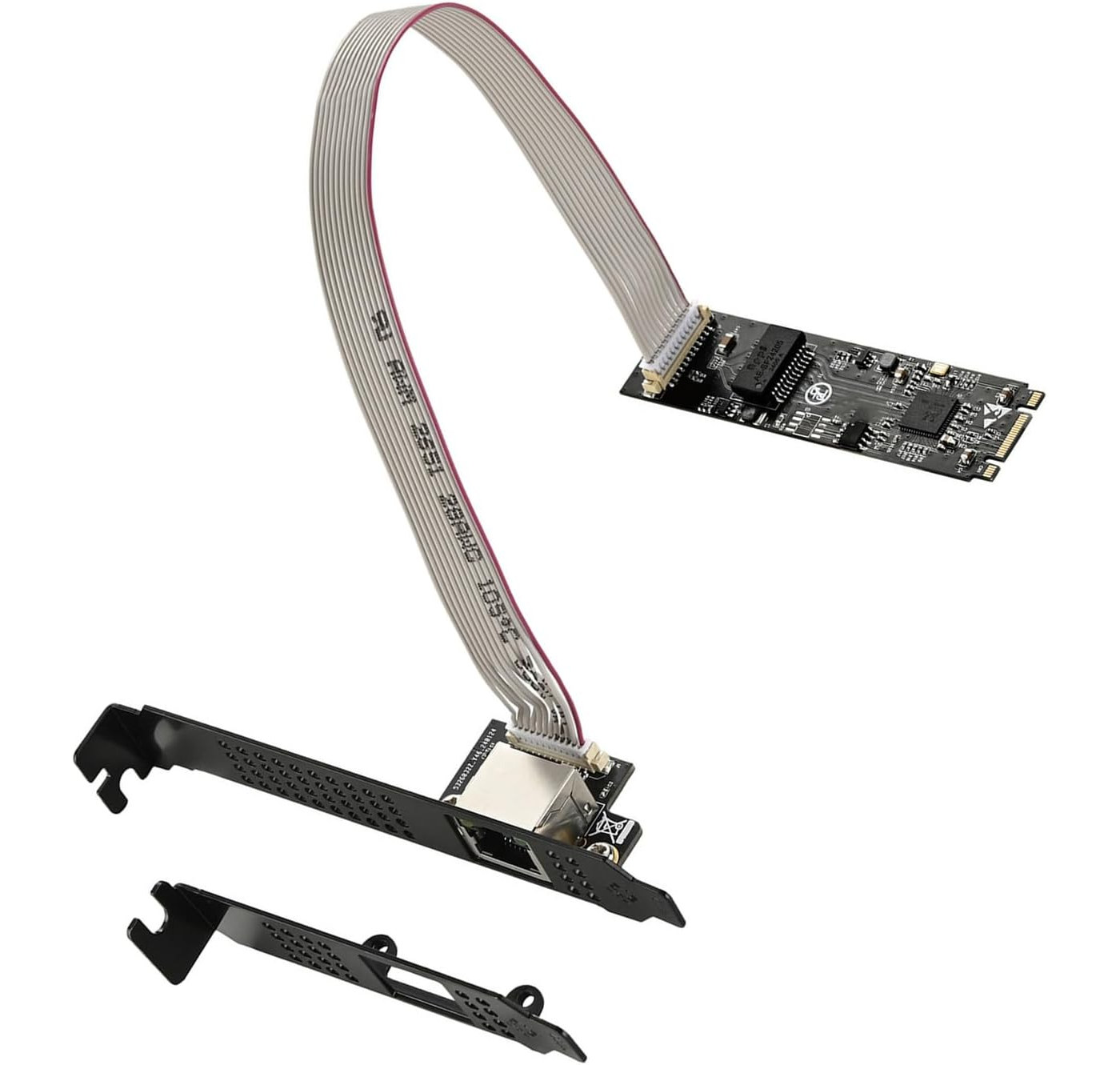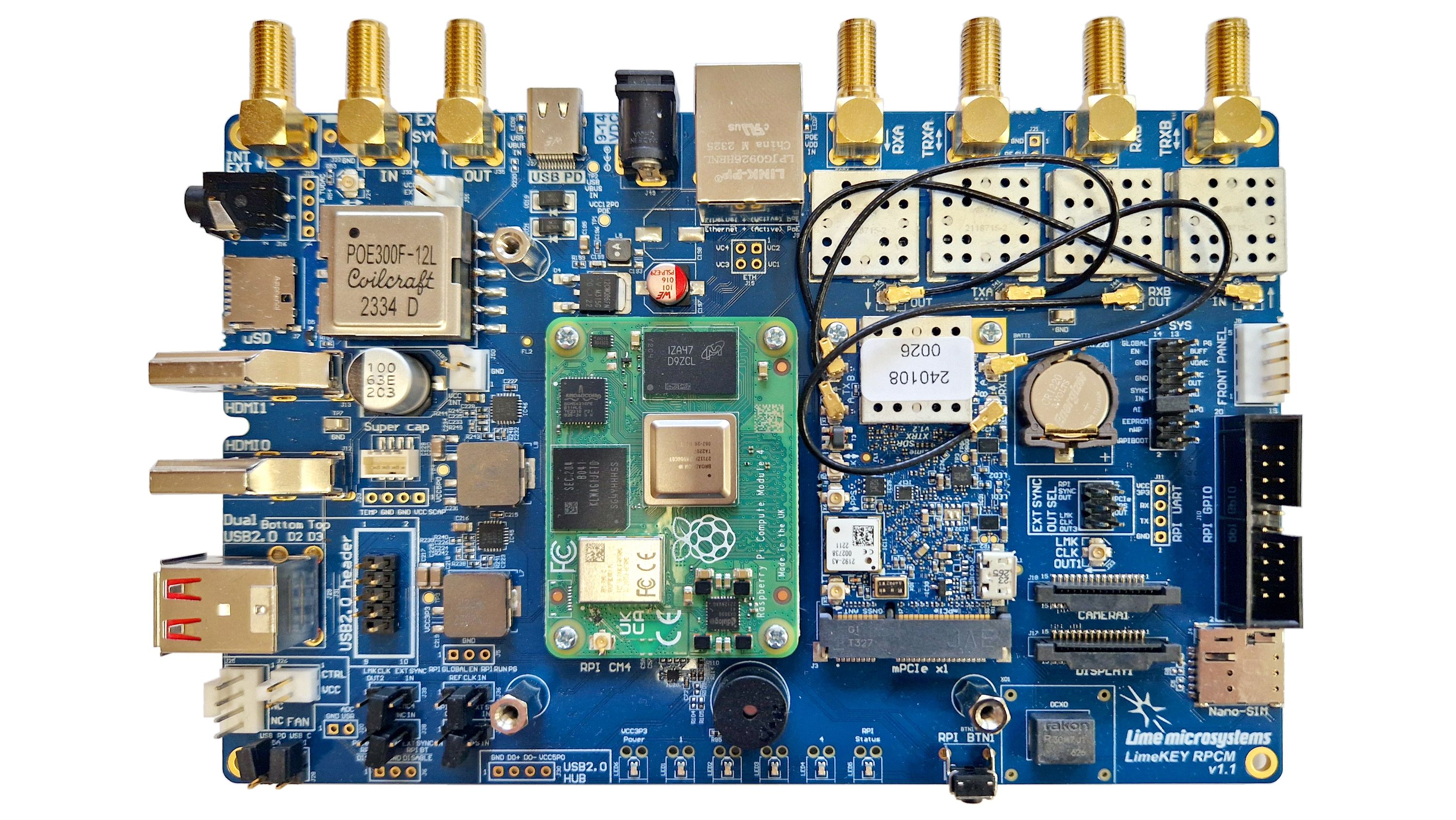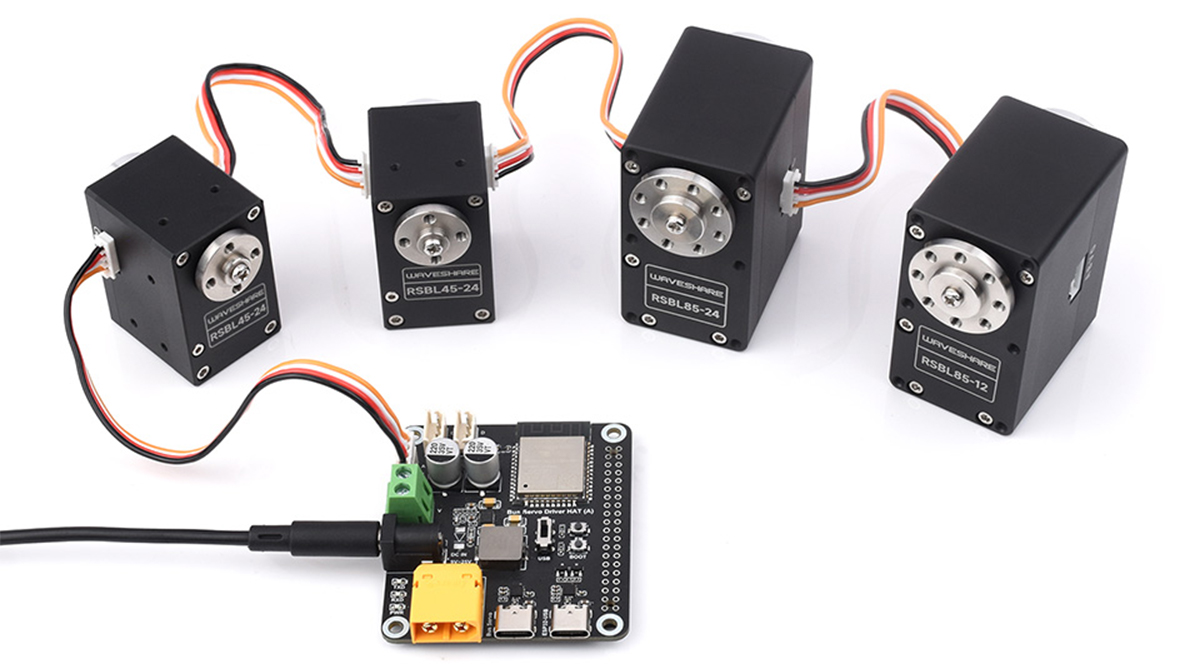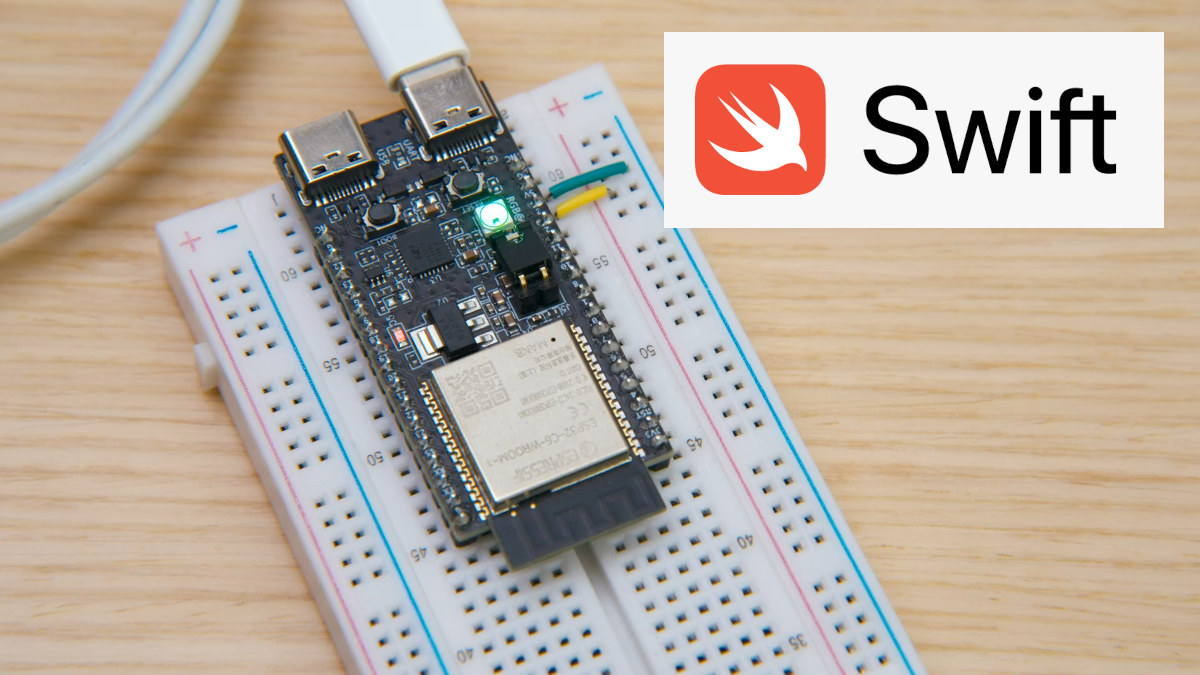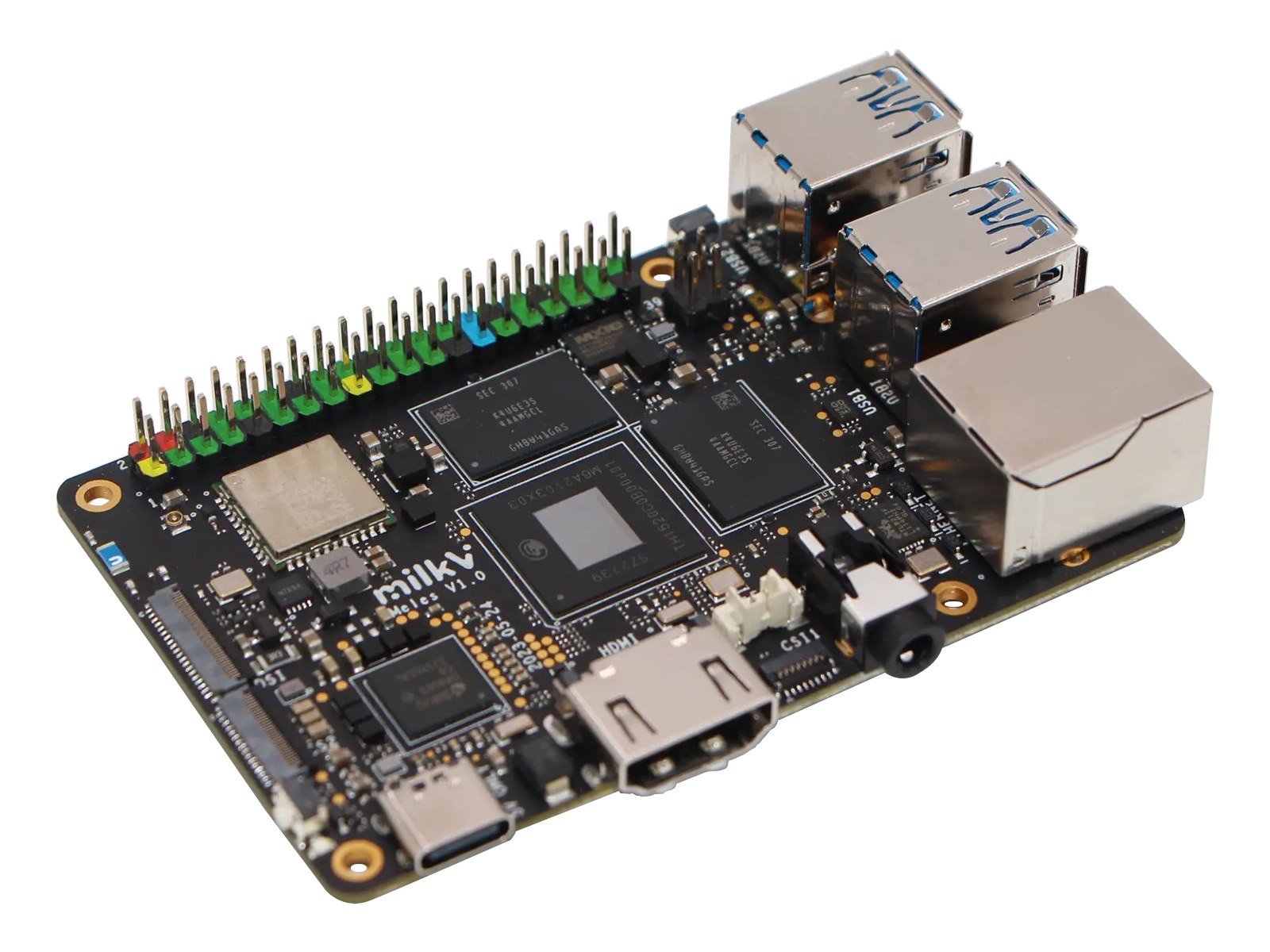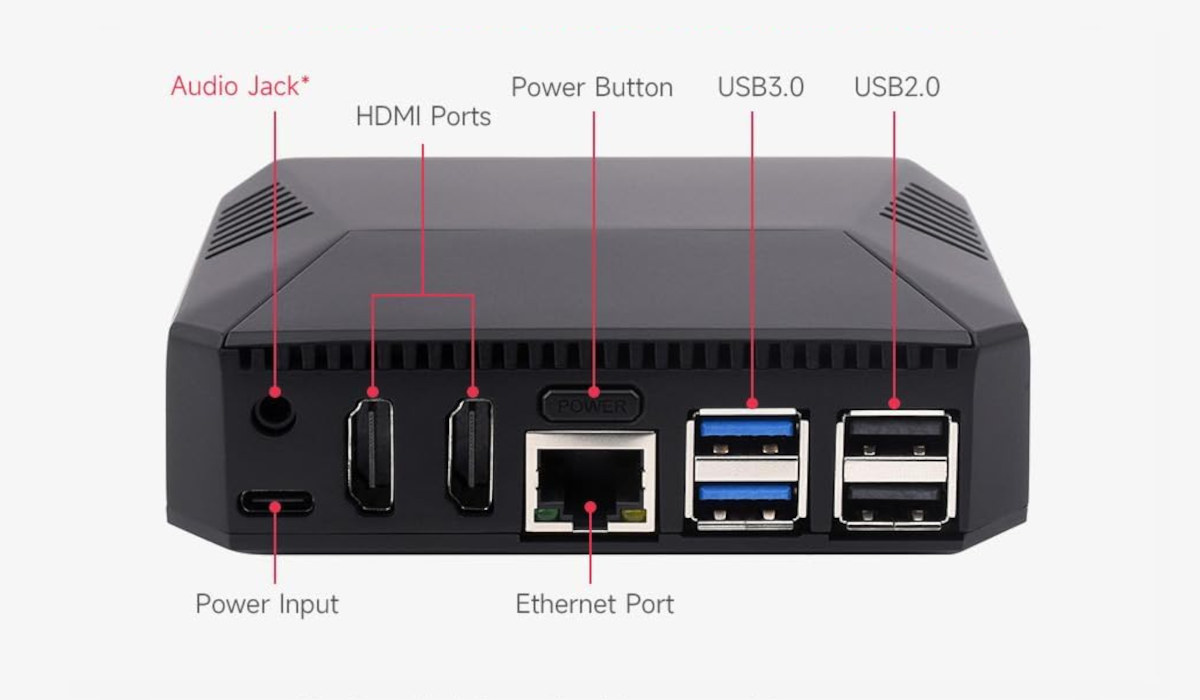The Pico Display Base Board is a printed circuit board from Applying Microcontroller Solutions that provides a platform for building Raspberry Pi Pico-based display projects. It works with a Raspberry Pi Pico board and an LCD screen based on the Solomon Systech SSD1963 display controller. The Pico Display Base Board features a 40-pin header (Display Port) which connects to GPIO on the Pico to provide an 8-bit parallel interface for the display and SPI pins for the touchscreen and integrated SD card. It supports various display sizes from 4.3 inches up to 7 inches. Displays up to five inches can be powered directly by the Pico. A jumper block on the board can be used to pass power to the LCD and wire the display’s optional flash chip to the Pico. A USB-C port on the board can provide an alternative power source for larger displays. It also has male […]
RealTek RTL8126 5Gbps Ethernet PCIe and M.2 adapters are now available for $12 and up
The low-power RealTek RTL8126(-CG) PCIe 3.0 x1 to 5GbE controller was unveiled at Computex 2023 last year, and a few M.2 modules and PCIe cards are now available at very competitive prices. The first module that came to my attention was the “5000Mbps Networking Card B+M Key to PCIe Adapter” from STDEV sold for $27 on Amazon (where there’s also a 7% discount) that’s an M.2 PCIe module with a ribbon cable that is connected to a board with an RJ45 jack attached to a PCIe bracket. There’s limited information about it, and it was just added to Amazon on June 8, so there aren’t any user reviews just yet. But earlier today, Jiri Brejcha informed us he had tested a similar card (might even be the same) from Iocrest with a Raspberry Pi 5 and a Pineboards HatDrive BM1 HAT+ managing to reach 4.7 Gbps transfer speeds in both […]
LimeNET Micro 2.0 Developer Edition board leverages Raspberry Pi CM4 and LimeSDR XTRX SDR module (Crowdfunding)
The LimeNET Micro 2.0 Developer Edition board is a modular software-defined radio (SDR) platform from Lime Microsystems that is based on the Raspberry Pi Compute Module 4 and the company’s own SDR board, the LimeSDR XTRX. It builds upon previous versions from Lime Microsystems, such as the LimeSDR Mini and LimeSDR Mini 2.0. It features a MIMO (multiple-input, multiple-output) radio and runs the more powerful Compute Module 4, an upgrade from the Raspberry Pi CM3 in earlier versions. The LimeSDR XTRX is an open-source, high-performance SDR in a compact, Mini PCIe form factor. It provides a platform for building logic-intensive digital and RF designs and can be used for MIMO antenna configurations from 2Tx2R to 32Tx32R. The platform is built around a planar system board, the LimePSB RPCM, which integrates the CM4, the XTRX, and other components and interfaces to make a complete baseband + RF solution for diverse wireless […]
Serial Bus Servo Driver HAT (A) can drive up to 253 servos simultaneously
Waveshare has recently introduced the Serial Bus Servo Driver HAT (A) ESP32-powered servo motor controller for the Raspberry Pi designed to drive up to 253 serial servos simultaneously. The servos can be controlled via UART or USB through the Pi SBC or used as a standalone controller for a robotics project. The board has a wide input voltage range of 9 to 25 volts and features an onboard XT60 connector, a screw terminal, and a DC barrel jack any of which can be used as power input. Besides that, the board features an RS485 port a TTL Servo header, and a UART control switch for convenience. Previously we have written about the Suptronics X200 HAT multifunction expansion board for the Pi with servo support, as well as the ELECFREAKS Wukong 2040 which can also be used to drive servos. Waveshare Serial Bus Servo Driver HAT specifications CPU – Espressif ESP32-WROOM-32 dual-core […]
Apple’s Embedded Swift programming language supports ESP32-C6, Raspberry Pi RP2040, STM32F7, nRF52840 microcontrollers
Apple has released a beta version of Embedded Swift that notably works with Espressif ESP32-C6 wireless RISC-V microcontroller, and the company also built a Matter sample based on ESP-IDF and ESP-Matter SDKs. Embedded Swift is not limited to the ESP32-C6 and supports other microcontrollers from STMicro, Raspberry Pi, Nordic Semi, etc… Apple Swift programming language is mostly designed for mobile app development, but we’ve also seen it being used on Mad Machine’s SwiftIO board powered by a 600 MHz NXP i.MX RT1052 Arm Cortex-M7 crossover processor and the tiny SwiftIO Micro launched a few years later. The company has now decided to create a subset of the Swift programming language better suited to microcontrollers simply called Embedded Swift that’s currently working on STMicro STM32F746, Raspberry Pi Pico, nRF52840, and ESP32-C6. The “Go small with Embedded Swift” presentation at WWDC 2024 shows how to get started with Embedded Swift using Espressif […]
Meles RISC-V credit card-sized SBC is powered by T-Head TH1520 quad-core SoC
Shenzhen Milk-V Technology’s Meles SBC (single board computer) is powered by a T-Head TH1520 quad-core RISC-V processor and offered in a credit card form factor similar to the Raspberry Pi 3 Model B layout. The board is quite more powerful with a 2.0 GHz quad-core SoC equipped with a modern GPU, a 4K capable video encoder and decoder, and a 4 TOPS NPU. The board also features gigabit Ethernet, a WiFi 5 and Bluetooth 5.2 module, four USB 3.0 ports, HDMI 2.0 video output, MIPI CSI and DSI interfaces, and a 40-pin GPIO header. Meles specifications: SoC – Alibaba T-Head TH1520 CPU Quad-core RISC-V Xuantie C910 (RV64GCV – Vector Extension version 0.7) processor up to 2.0 GHz Low-power Xuantie E902 core GPU – Imagination BXM-4-64 GPU with support for OpenGL ES3.0/3.1/3.2, OpenCL 1.1/1.2/2.0, Vulkan 1.1/1.2; 50.7GFLOPS DSP – Xuantie C906 audio DSP @ 800 MHz VPU Video Decoder H.265, H.264, […]
The RPGA Feather dev board pairs RP2040 chip with a Lattice iCE40 FPGA for sensor fusion projects
Oak Development Technologies’ RPGA Feather board integrates the Raspberry Pi RP2040 microcontroller with the iCE5LP4K FPGA from Lattice Semiconductor into a compact development board in the Adafruit Feather form factor. The iCE5LP4K FPGA is an ultra-low-power chip in the iCE40 Ultra product family designed for mobile applications such as smartphones, tablets, and handhelds, while the Raspberry Pi RP2040 microcontroller makes it much easier to program the FPGA using CircuitPython. We have seen Oak Development Technologies’ earlier forays into FPGA Feather-compatible products such as the IcyBlue board (also based on iCE5LP4K FPGA) and the Lattice FeatherWing. RPGA Feather specifications: MCU – Raspberry Pi RP2040 dual-core Cortex-M0+ microcontroller @ 133 MHz with 264KB SRAM FPGA – Lattice Semiconductor iCE5LP4K FPGA Logic Cells – 3,520 logic cells Memory 80 Kbits of embedded Block RAM (EBR) Distributed RAM: 640 bits 2x hardware I2C blocks and 2x hardware SPI blocks 26 I/Os for customized interfaces […]
Argon ONE V3 M.2 NVMe case for Raspberry Pi 5 brings all ports on one side, full-size HDMI ports
The Argon ONE V3 M.2 NVMe case for the Raspberry Pi 5 is an update to the Argon ONE M.2 case for the Raspberry Pi 4 that brings all ports of the Raspberry Pi 5 on one side and features full-size HDMI ports instead of the micro HDMI ports on the Pi 5 SBC. Debashis has just written about the Waveshare Pi5 Connector Adapter board that connects to the micro HDMI and USB-C ports of the Raspberry Pi 5 to bring them alongside the other ports and features two full-size HDMI ports. It’s a good idea, but it lacks an enclosure. The Argon ONE M.2 NVMe case does something similar with an enclosure and supports for NVMe SSD drives. Argon ONE V3 M.2 NVMe case key features: SBC – Compatible with Raspberry Pi 5 Storage – M.2 NVMe SSD via Key-M socket connected to the Raspberry Pi 5 PCIe connector; […]


